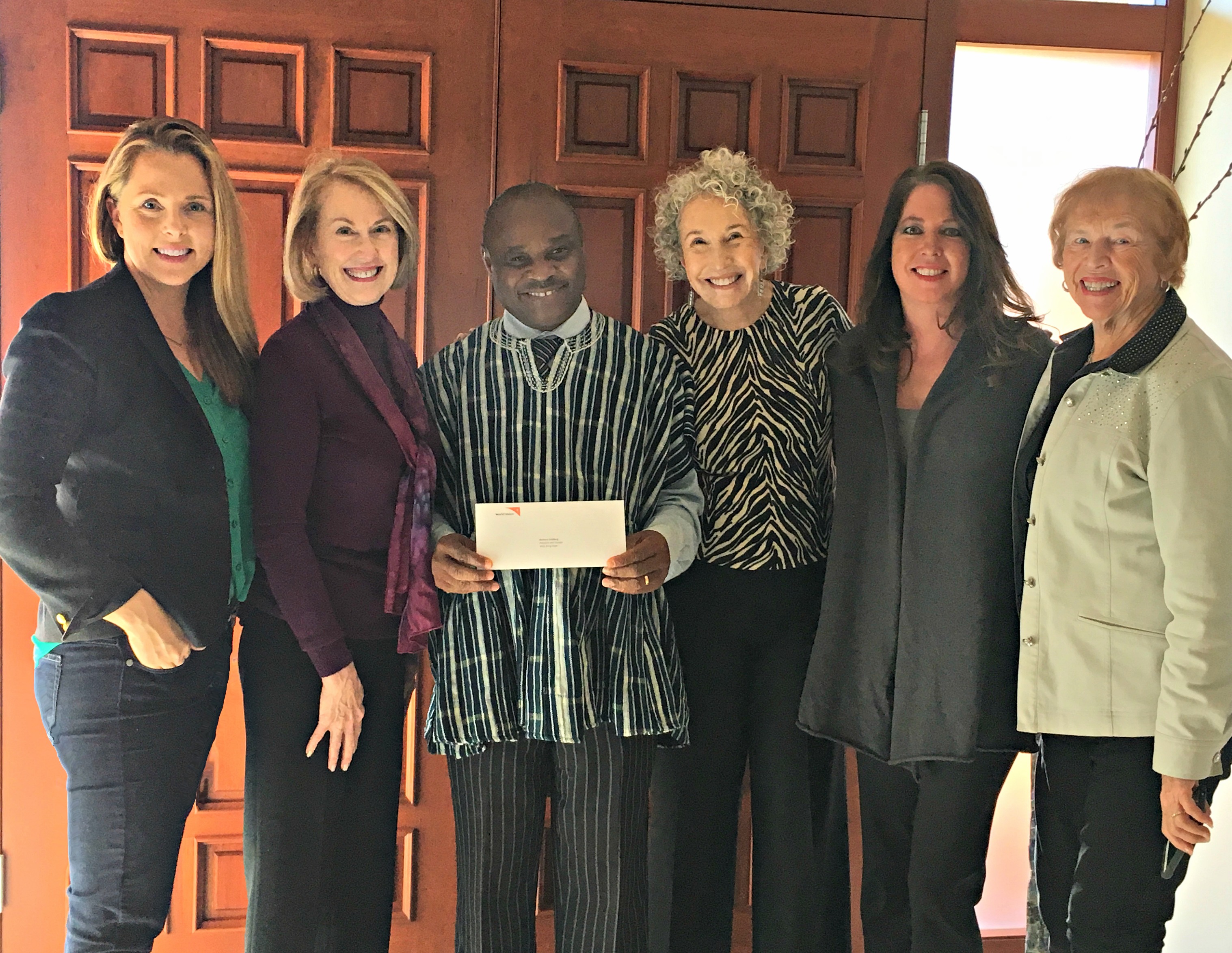 |
| {From left to right: Kate Cusimano, Ida Harding, Esperance Klugan, Barbara Goldberg, Jamie Gates, and Jan Doak} |
Earlier this year, members of Wells Bring Hope’s Board and Advisory Board had the opportunity to meet with Esperance Klugan, Director of Operations, West Africa Region and former Director of World Vision, Niger. Esperance has a unique background, combining the worlds of finance and humanitarian help for women.
Prior to taking on the position of Director of World Vision Niger, he had fifteen years of experience in establishing and managing microfinance programs for women. It is something he strongly believes in. “I know that it works. I’ve seen a number of mothers’ lives transformed through microfinance where we have drilled a well in a village. We free the women’s time, a lot can be done.”
The microfinance program for women is based on the idea that giving microloans is not enough. Women must be educated in how to handle money and in the basic principles of business. By forming savings groups, women are giving training and guidance on how to start their own small businesses. They each contribute a small amount of money weekly, and pool the resources, loaning to each other. With this support system, women are able to practice with their own money and build confidence in their abilities.
As these women expand their businesses and repay their loans, they don’t just improve the economic circumstances of their families, they help to transform lives throughout their entire village, providing real hope for their futures. Esperance has seen this first hand, “I’ve seen women transformed to the point where you go to the same community, talk to the same women, but they are different women, confident, and proud of their accomplishment. It’s extraordinary. And husbands take great pride in what their wives are doing and the whole family dynamic changes for the better. They are equals, partners.”
Esperance plans to expand the microfinance program using the savings group model, to seven countries over the next five years. “This will affect thousand of villages…water alone is good, but it’s not enough. When people have safe, clean water to drink it’s good, [but] it’s just the beginning. It doesn’t address the issue of malnutrition fully. Click here for more information about microfinance support for women in Niger, West Africa .


